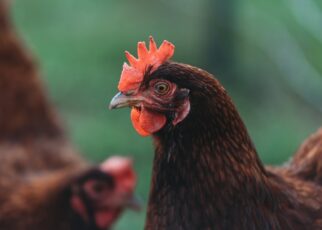In a recent announcement by the World Health Organization (WHO), it was revealed that Australia’s first case of the H5N1 strain of bird flu, reported last month in a child, likely originated during a trip to Kolkata, India. The WHO confirmed that the child had traveled to Kolkata but stated that the family denied any known exposure to infected individuals or animals during their stay.
The genetic sequencing of the avian influenza virus, conducted by the WHO, indicated that it was the H5N1 strain, commonly found in Southeast Asia and predominantly detected in previous human infections and poultry. While the exact source of exposure remains unknown, the WHO suggested that it likely occurred in India, where this particular clade of A(H5N1) viruses has been observed in birds in the past.
According to the WHO’s statement, the two-year-old girl from Victoria traveled to Kolkata from February 12 to February 19 and returned to Australia on March 1. As of May 22, no close family members in Australia or India had exhibited any symptoms of the virus.
The child was hospitalized on March 2 upon returning to Australia and remained in the hospital for over two weeks before making a full recovery, as reported by Victoria’s health department. Despite additional information from the family indicating that the child did not travel outside of Kolkata or have any known exposure to sick individuals or animals while in India, the exact event leading to the infection remains unclear.
Victoria’s Chief Health Officer, Clare Looker, expressed uncertainty regarding how the child contracted the virus, suggesting potential sources such as visiting poultry farms or live wet markets where birds are present. She emphasized that human transmission of the virus usually occurs through exposure to poultry, and occasionally through handling infected bird meat or eggs.
In response to the bird flu outbreak in Australian states, the Philippines’ agriculture ministry announced a ban on the import of birds and poultry products from Australia. The ban includes imports of wild and domestic birds, poultry meat, day-old chicks, eggs, and semen, effective immediately.
The case serves as a reminder of the importance of vigilance and preventive measures against the spread of infectious diseases, particularly in the context of international travel and trade. While the exact circumstances surrounding the transmission of the virus remain uncertain, it underscores the need for continued collaboration and coordination among health authorities globally to monitor and respond to emerging health threats effectively.





